What It’s Like Being Part of a Neurodivergent Community — From the Founder of a Neurodivergent Friendship Group
(Or: Why I No Longer Feel Like a Malfunctioning Alien)
Before I met my neurodivergent people, I fully believed that I was an alien, and I desperately wanted to return to my home planet. I was constantly anxious, and felt like I was bad at socialising. I mean, I can hold a conversation, do small talk, smile and nod at most of the appropriate times — all that neurotypical masking stuff — but it didn’t feel natural or easy. Socialising almost always caused anxiety and left me feeling drained, and somehow disconnected from the people around me. It felt like I was on the other side of an invisible glass wall — present, but not part of it.
It often felt like I was doing everything wrong. I was being too blunt, too awkward, too weird , too intense, too sensitive, too excited, too quiet… telling too many knock knock jokes, basically too much for the non aliens.
The persistent anxiety I felt before, during and after social events, and my permanent sense of disconnection from others, led me to reach for unhealthy coping strategies — like overdrinking and pretending to be someone I’m not.
Eventually, keen to move away from self-destructive behaviours after discovering I’m AudHD, I decided to set up a small in-person neurodivergent community to meet people who were just like me. And for the first time, I felt normal — and I loved it. I guess those who joined felt the same, because the group rapidly grew into what it is now.
We’re called the London Neurodivergent Friendship Group (LNFG). Many members chat in our group every day and meet up to socialise at least once a week.
This post is about what it’s like to be part of a neurodivergent friendship group — from my perspective, and from some of the members of LNFG — and what it’s actually like to be in a space where you don’t have to pretend to be a neurotypical version of yourself.
Being Accepted — Without Hiding the Weird Bits
One of the most life changing benefits of being part of a neurodivergent community, is that you don’t have to keep your neurodivergent traits and struggles hidden away like dead bodies in the attic. (Note- delete this creepy and uncomfortable joke 🌚)
In our group there is no need to mask your Neurodivergent traits, deny your challenges, or pretend everything’s fiiiiine when they are not.
You can say, “I’m not coming as I have no spoons” — and no one is going to make you feel like you’ve let the group down.
Show up late, leave early, cuddle your plushy in the pub, stim away, interrupt, talk too much, talk too little, go off on one about your guinea pigs, zone out mid conversation, blurt out something random and mildly offensive and ask questions that would get confused looks at your family dinner — no one minds.
Because this is normal to us and we are here for it!
Andrew, one of the LNFG members, put it like this:
“For me, there's a feeling of acceptance. There's a feeling of being seen—being in a group of people who are very similar to me. That’s something unique. I find that I operate in a neurotypical world day to day, and coming to this group, I can interact with people who are similar to me in different ways. That's incredibly liberating. It gives me a sense of being seen and accepted by people who are like me, and that’s very liberating”
The LNFG is consciously shame-free. Not just accidentally tolerant — consciously, intentionally shame-free. We’re deliberate about creating a space where no one’s made to feel “too much,” “too odd,” or “too difficult.” There’s an understanding that we’re all atypical, and we all have stuff: executive dysfunction, sensory needs, social fatigue, anxiety, dysregulation, flakiness, the occasional meltdown — all neurodivergent traits are accepted here.
Maybe that’s partly why members describe the group as life-changing, and even life-saving. Because when you’ve spent a lifetime internalising the idea that your needs are annoying, your emotions are excessive, and your instincts are wrong — being in a space where no one’s trying to fix you is life-changing.
Unmasking
Many of us Neurodivergents are excellent at masking. Years of rehearsed small talk, hypervigilance about tone, forced eye contact (👁️👁️), dialling down enthusiasm, and pretending not to mind the things that we do mind— all so we can be accepted by the Neurotypicals.
But in a neurodivergent group, the mask can drop 🤗
At a recent event, Tyrone shared with me how the group lets him be fully himself — without having to mask who he is:
“In a word, it’s amazing — because in this kind of community, you actually find people who see the world the way you do, who react to the world the way you do, who respond to things the way you do, and who you can genuinely communicate with in a way that feels natural. You don’t have to hide who you are. You don’t have to mask or put on a different personality to meet the world’s expectations. You can be yourself, they can be themselves, and you can relate to each other as people — not as artificial roles defined by a society that thinks differently. That’s a huge relief for all of us. It’s a way of escaping the pressures we face day to day and being with people we can truly relate to.”
You can ramble, stim, monologue about something mildly unhinged, avoid eye contact and small talk and act as enthusiastic or quiet as you like, and display any trait that you have been suppressing and hiding 🤸
The RSD Witch is Not The Main Character
Rejection Sensitive Dysphoria (RSD) — also known as the RSD Witch — doesn’t disappear when you find your people, unfortunately.
RSD is a deeply unpleasant, intense, and often disproportionate emotional reaction that kicks in when we feel rejected, criticised, or excluded. It can trigger overwhelming anxiety, rage, plummeting self-worth, shutdowns, overthinking, and shame that can linger for hours or even days.
When RSD hits, we spiral. It’s physical — like shame and panic have punched us in the stomach, set fire to our nervous system, and ignited our brain into full fight-or-flight mode. RSD can feel genuinely like it’s the end of the world. And definitely the end of our social life.
And the way the RSD Witch taunts us during these episodes is brutal. “Everyone hates you.” “You’re too much.” “No one actually likes you, they’re just being polite.” These thoughts are intrusive and overwhelming — and it can be very difficult to just “get a grip.”
The relief when RSD finally recedes because we feel accepted and loved for who we are is life-changing.
Rosie described how our community gave her a sense of belonging and love she hadn’t felt anywhere else:
“I feel a sense of belonging—loved, cared for, everything I’ve needed in my life. Before I was in this community, I didn’t socialise or have any kind of social life. I didn’t belong anywhere. This is my true place. I’ve never been judged; everyone here cares for me, and I like to think I give the same back.”
That last part — never been judged — is key. Because RSD thrives in environments where we feel scrutinised, criticised, or like we have to earn our place by behaving “correctly”. But in consciously shame-free spaces like ours, the pressure lifts. You’re allowed to say, “Sorry my message was weird” and it doesn’t make it even weirder to say that. You’re allowed to admit you’ve been spiralling because you thought someone was annoyed with you — and instead of being dismissed, people will say “Sorry you feel that way” and even offer reassurances.
We all know the feeling. So we’re a lot kinder and more empathetic with each other about it.
That doesn’t mean RSD magically disappears. We still misunderstand each other sometimes. We still spiral. But the collective attitude is much more supportive and “I relate to that” and much less “Calm down, it’s not that deep.”
And we’re transparent about it. In our group chats, someone might say “Having an RSD moment,” and everyone is empathetic. Nobody rolls their eyes or makes a joke about overreacting. There’s no shame in admitting it. Because we’ve all been there — catastrophising over a full stop, replaying a conversation from three days ago, assuming we’ve been quietly exiled because someone read our message and didn’t respond within ten minutes.
The big difference in Neurodivergent community is that you don’t have to hide that part of you. You don’t have to mask your sensitivity or pretend you’re not panicking inside. And gradually over time — the episodes become less frequent, and less intense. Not because you’ve toughened up, but because the space itself is softer.
We can’t completely silence the RSD witch. But we can stop feeding her favourite food: shame
Sensory-Friendly by Default
Group settings and noisy, crowded venues overwhelm me — and most Neurodivergents.
But in our group, no one’s dragging us to a shouty, sweaty, crowded hell-hole bar. Our events are almost always held in venues with low lighting, low noise, and minimal crowding.
And if sensory overwhelm does creep in, we can say so. There is no eye rolling and passive-aggressive comments when someone says they hate the venue, that they need a break, cancels last minute, leaves early, or disappears offline for a few days.
Our events range from 3 to 50 people — but even those of us who normally avoid group socialising feel comfortable in this setting.
Mike commented on how easy and natural he finds socialising within a neurodivergent community:
“So what is it like being part of a neurodivergent community? It’s brilliant. I’ve been part of this for well over six months now, and it’s great—meeting people and just having conversations with others who are very similar and share a lot of the same traits. It’s just really easy. I don’t usually like big group socialising, but with this, it just feels very natural.”
We Don't Do The NT Script
Neurotypical conversations often come with a script and rules. Stick to surface-level chat. Don’t overshare. Don’t be too enthusiastic or weird. Definitely don’t talk about your neurodivergent experiences.
Lara, newly diagnosed and new to the group, shared:
“For me, it's about having a really fun, really lovely group that I've never been a part of before because I've only just found out that I was neurodivergent and I've been so welcomed and in a way so loved as well. So it's really lovely to be in this group, to be a part of this group and to get to know other people who are neurodivergent like me and being able to you know, just share my experiences and hear other people's experiences as well.”
In our groups, conversations ping-pong from memes to neurodivergent experiences, to trauma, to multiverses, to octopus facts — and everything in between.
Texts, Overthinking and the Curse of the Double Blue Tick
Texting, by the way, is a whole RSD battleground in itself. I’ve written about this in more detail elsewhere, but in short us with ADHD often forget to reply for so many reasons.
And on the flip side, when we don’t get a reply? Cue the RSD witch: ‘’They don’t like you. You made it weird. Delete your WhatsApp and move to a forest.’
This is why Neurodivergent friendships survive - because we get it. Someone takes 3 days to reply? That’ll be your ADHD, its ok, me too!
Final Thoughts
But! Neurodivergent friendships aren’t always unicorns in rainbow land. We’re sensitive, reactive, and direct — with a lot of internalised shame,trauma. and often some internalised ableism too. There are misunderstandings, hurt feelings, overcorrections, and the occasional fallout.
But we’re learning and growing. And unlike ND + NT friendships, we don’t have to sacrifice our identity to maintain the connection. In Neurodivergent friendships, we’re not tiptoeing around someone else’s idea of “appropriate.” We’re not being shamed for being ourselves.
We’re allowed to be intense. Honest. Blunt. Too much.
We don’t perform neurotypicality to keep each other comfortable. And we don’t treat sensory needs, stims, or emotional openness as things to fix or avoid.
That alone makes these friendship spaces feel safer than any I’ve known.
So if you’re still navigating the world thinking you’re bad at friendships, or socialising, or just being — you’re not.
You’ve just not found your people yet.
But they’re out there. Probably talking to some pigeons, not making eye contact, and wondering when they can go back to their home planet.
There are neurodivergent social groups popping up everywhere — have a look and see if there’s one local to you.
If not, why not start one? I set mine up on MeetUp, and it was one of the best things I’ve ever done.
If you are interested in more of what members and other neurodivergents have to say we have a separate channel called Neurodivergent Voices
Here for the latest post featuring interviews from LNFG members about what its like being in our group
Based in London UK, neurodivergent and looking for your tribe?
Here to apply to join us (please note, there is a waiting list)
Are you in the UK and looking to get an ADHD diagnosis? Getting one in the UK is ridiculous -insane waiting times and difficult doctors if NHS, crazy money if private.
I’ve partnered with a service called Mentalwell, who have given me a 15% discount to share
All assessments with Mentalwell are done by psychiatrists who are experts in ADHD (not nurses or pharmacists), they're fully remote, and start at £590 (before the discount below), which is a zillion times cheaper than what I paid !!
You don’t have to get a referral from your GP, no waitlists either, and you’re fully supported. You can start with an assessment only or go for a full care package.
Here is the code for 15% off: JEANIE15


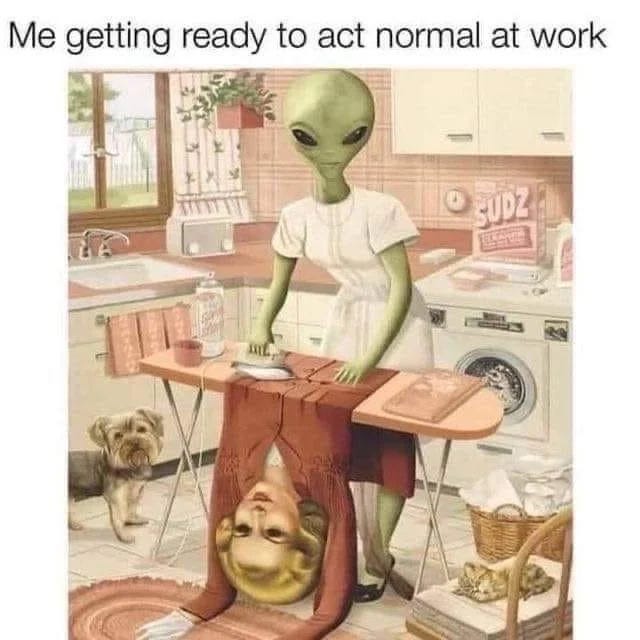

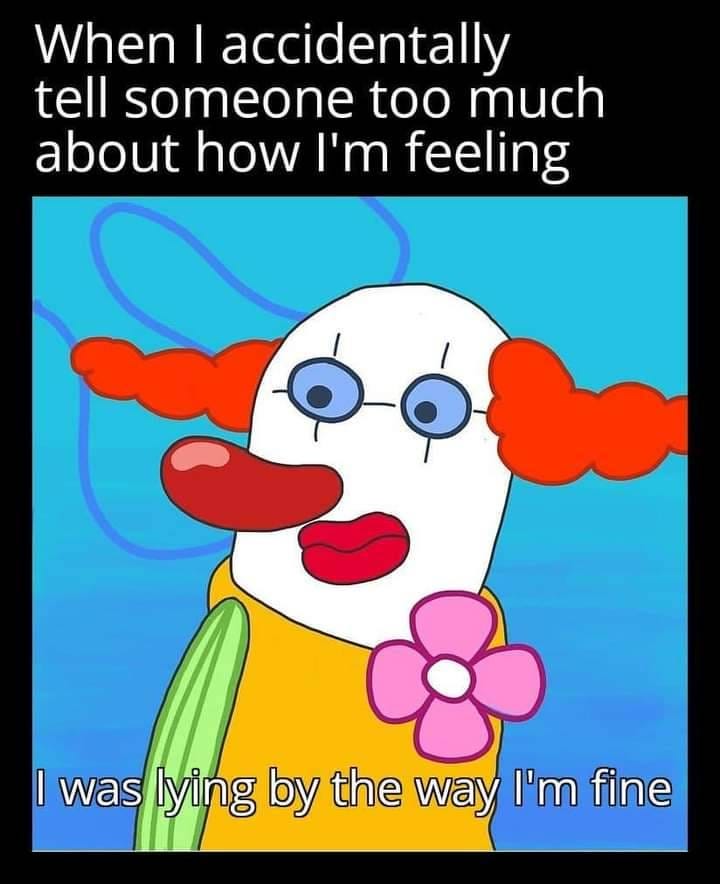
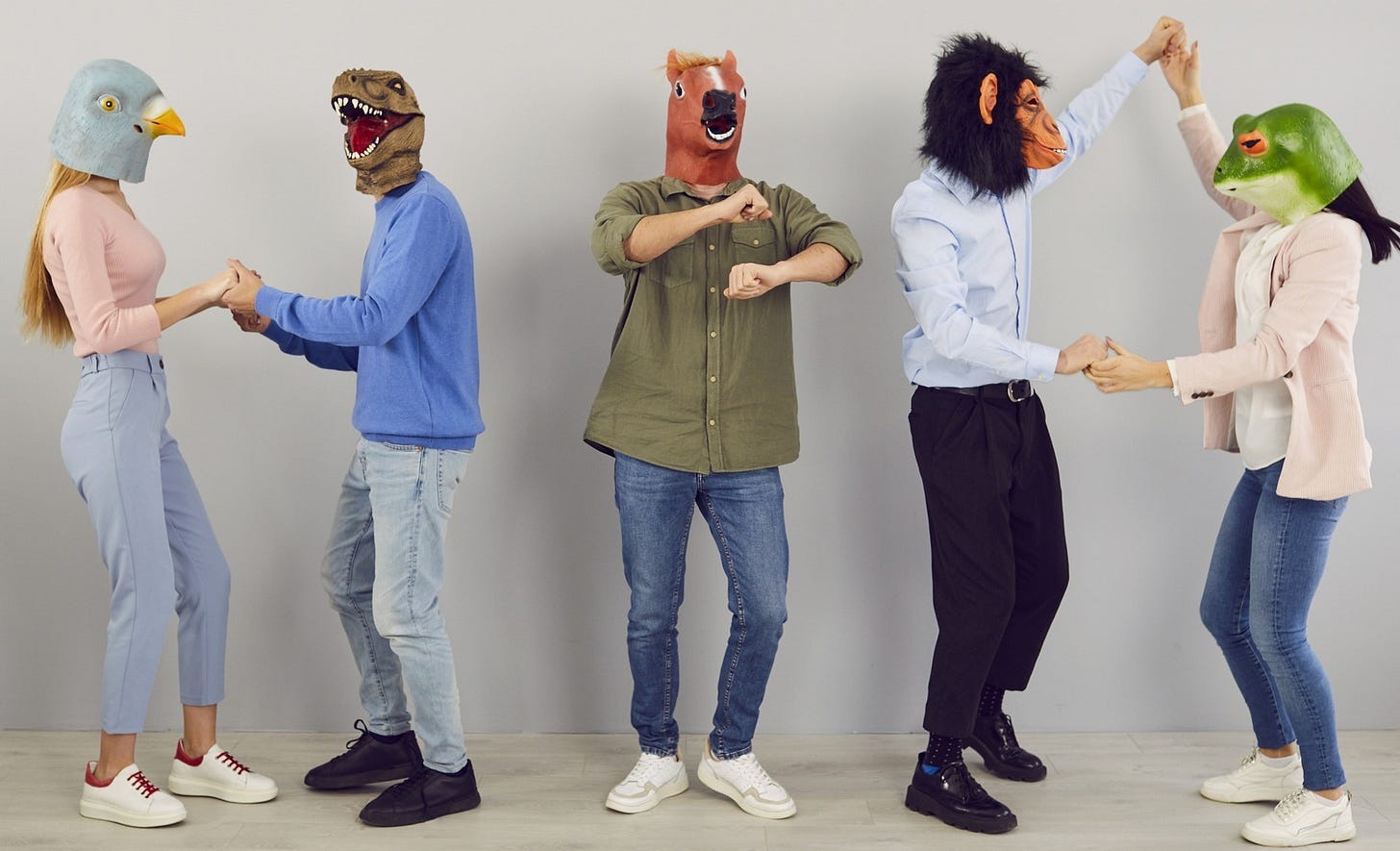
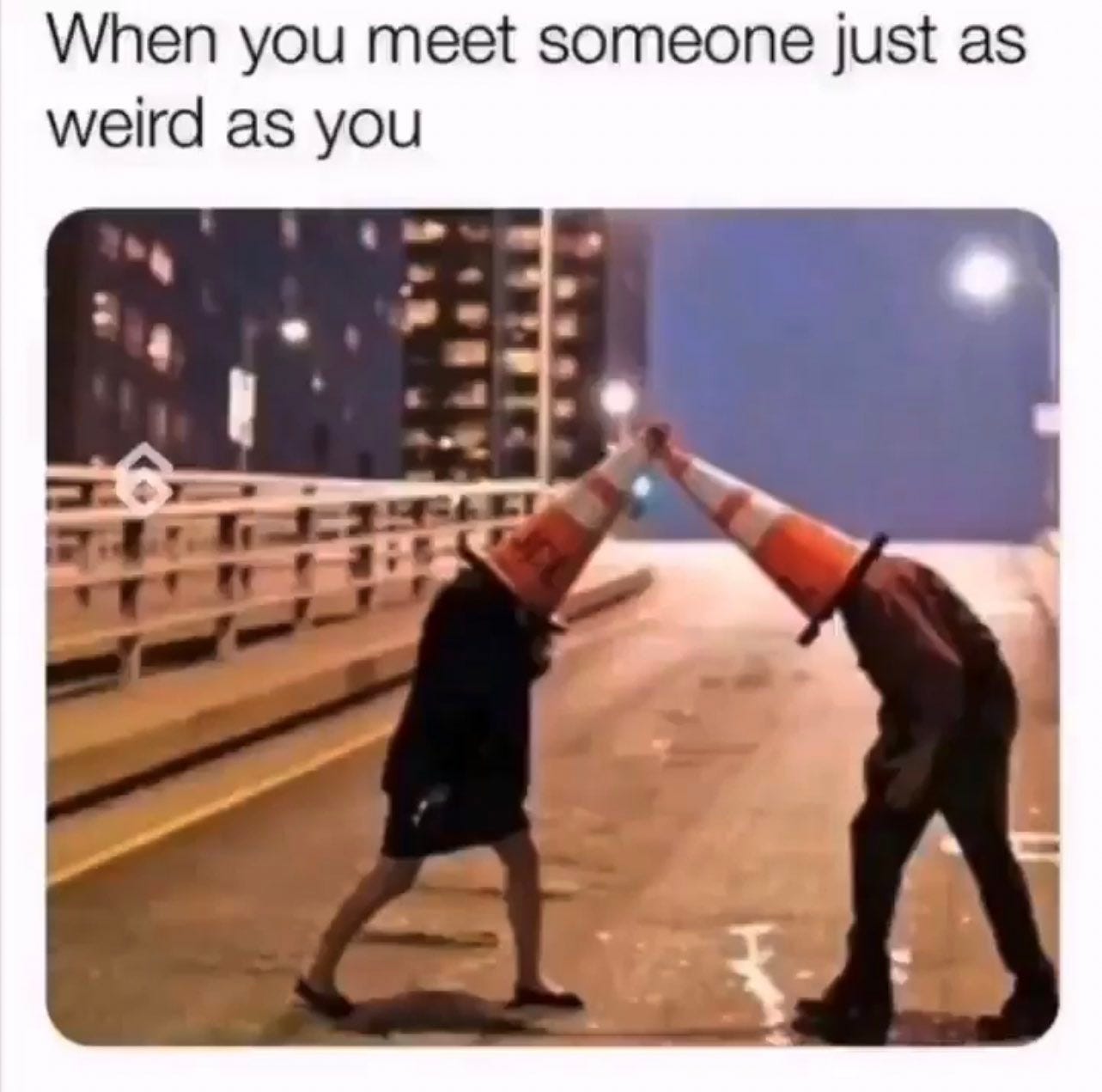

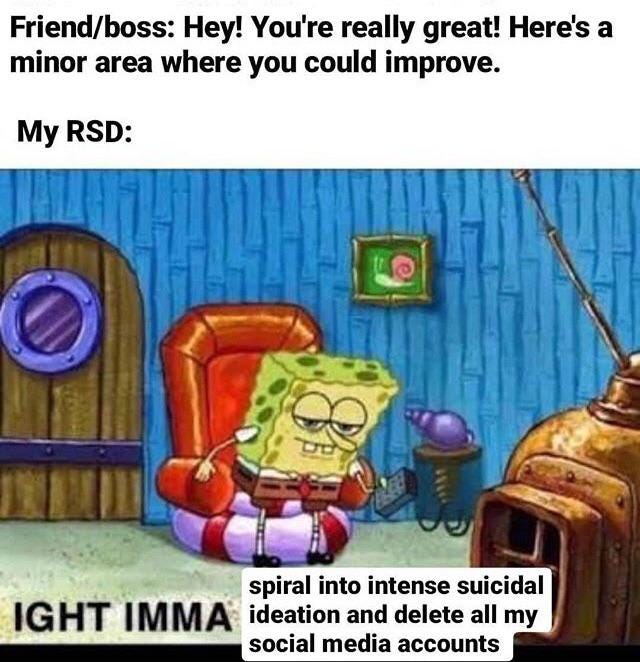


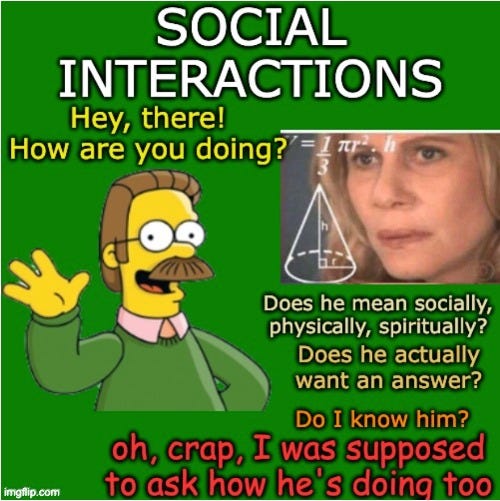
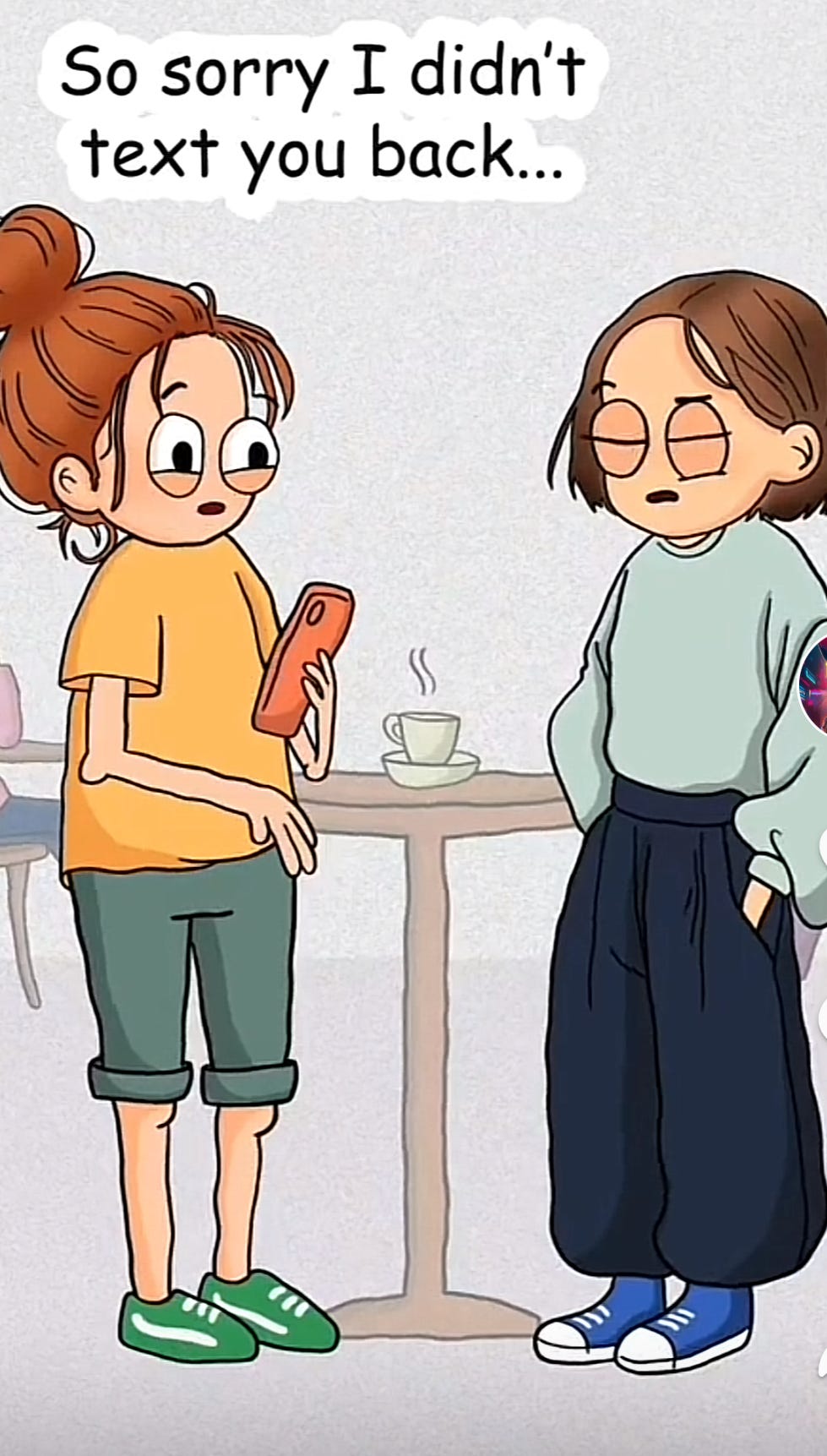
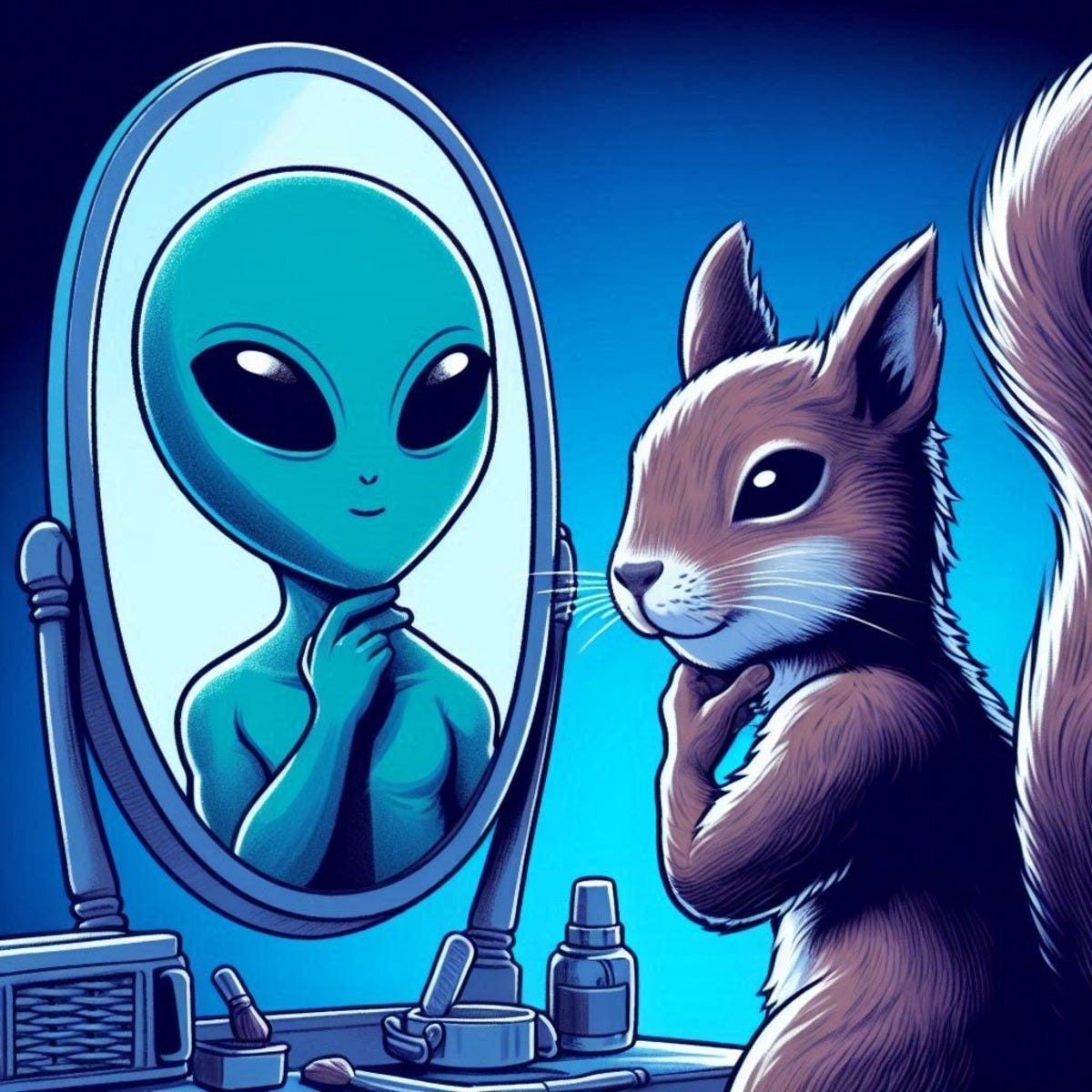
OMG, that first meme is exactly how I feel - not just 're work but 're "real life" full stop! I also feel like I must have been off school sick the week we got the "handbook" and "lessons" on how to be a human! And the Ned Flanders one - I remember answering "how are you" with how I actually was, not "I'm fine" and got a mild telling off! Getting a late ASD diagnosis (3 years ago, at 58 yrs) answers so many questions while giving me so much more to work out.
This was something else entirely — not just honest, but recognizably lived. I felt seen in almost every line. From the RSD Witch to “I’ve never been judged,” from the invisible glass wall to the pigeons and the home planet — it was funny, raw, affirming, and gently revolutionary.
I’m reading from Montreal, still looking for my own version of that kind of soft, shame-free community. What you’ve built — with care, with clarity — it gives the rest of us hope.
Grateful you shared it.
– Mark E. Paull